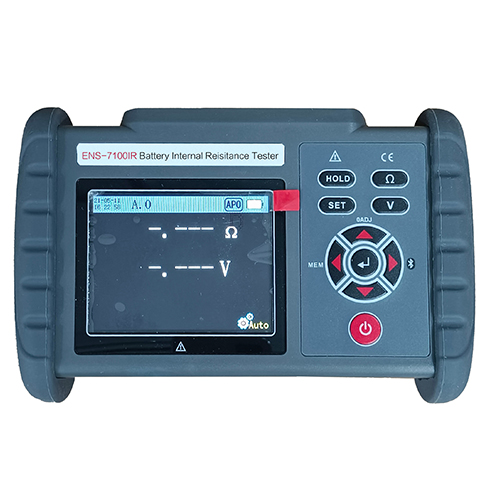Batteries play a crucial role in powering a wide range of devices, from smartphones and laptops to electric vehicles and renewable energy systems. To ensure optimal battery performance and longevity, it is essential to monitor their health and assess their internal condition. This is where battery impedance testers come into play.

1. Understanding Battery Impedance:
Before delving into the specifics of battery impedance testers, let's first understand the concept of battery impedance. Battery impedance refers to the resistance encountered by electrical current flow within a battery. It provides valuable insights into the battery's internal health, performance capacity, and overall state.
2. The Importance of Battery Impedance Testing:
1). Early Detection of Battery Degradation: Battery impedance testing enables early detection of internal issues in a battery, such as aging, electrode degradation, or electrolyte problems. By monitoring impedance over time, one can identify changes that may indicate declining performance or potential failures, allowing for timely maintenance or replacement.
2). Performance Analysis: Battery impedance testers help evaluate a battery's performance under different conditions. By measuring impedance at various temperatures, discharge rates, or charge levels, one can assess the battery's capability to deliver power efficiently. This information is particularly crucial in applications where reliability and performance are vital, such as electric vehicles or critical backup power systems.
3). State of Health (SoH) Evaluation: Impedance testing provides insights into a battery's overall health, often referred to as the State of Health (SoH). SoH evaluation helps determine the remaining capacity and estimated lifespan of a battery, enabling better planning for battery replacement.
4). Preventive Maintenance: Regular impedance testing allows for proactive maintenance, reducing the risk of unexpected battery failures. By identifying potential issues early on, necessary steps can be taken to extend battery life, optimize performance, and avoid costly downtime.
Applications of Battery Impedance Testers:
Battery impedance testers find extensive applications across various industries, including:
1). Automotive: Battery impedance testing is crucial for electric and hybrid vehicles to assess battery health, estimate range, and monitor performance.
2). Telecommunications: Telecom networks rely on backup power systems, and impedance testing ensures the readiness of batteries during power outages.
3). Renewable Energy: Battery impedance testing helps maintain the performance and reliability of energy storage systems used in solar or wind power installations.
4). Industrial: Impedance testing is employed in industries relying on uninterruptible power supplies (UPS), ensuring reliable backup power for critical equipment.
Battery impedance testers are powerful tools for assessing the internal health, performance, and remaining lifespan of batteries. By obtaining accurate impedance measurements, one can make informed decisions regarding maintenance, replacement, or optimization of battery systems. Embracing battery impedance testing enables industries to enhance reliability, maximize efficiency, and minimize costly downtime. As battery technology continues to evolve, the use of impedance testers will play an increasingly significant role in ensuring the longevity and reliability of batteries powering our modern world.
 English
English
 Español
Español
 Português
Português
 русский
русский
 français
français
 日本語
日本語
 Deutsch
Deutsch
 Tiếng Việt
Tiếng Việt
 Italiano
Italiano
 Nederlands
Nederlands
 Pilipino
Pilipino
 Türk
Türk
 Gaeilge
Gaeilge
 عربى
عربى
 Indonesia
Indonesia
 norsk
norsk
 čeština
čeština
 Ελληνικά
Ελληνικά
 فارسی
فارسی
 தமிழ்
தமிழ்
 Српски
Српски
 Català
Català
 עִברִית
עִברִית
 Galego
Galego
 Беларус
Беларус
 Hrvatski
Hrvatski
 ជនជាតិខ្មែរ
ជនជាតិខ្មែរ
 Кыргыз тили
Кыргыз тили
 O'zbek
O'zbek
 Lëtzebuergesch
Lëtzebuergesch
 ไทย
ไทย
 Polski
Polski
 한국어
한국어
 Svenska
Svenska
 magyar
magyar
 Malay
Malay
 বাংলা
বাংলা
 Dansk
Dansk
 Suomi
Suomi
 हिन्दी
हिन्दी
 български
български
 ລາວ
ລາວ
 Latine
Latine
 Қазақ
Қазақ
 Euskal
Euskal
 Македонски
Македонски
 Lietuvos
Lietuvos
 Eesti Keel
Eesti Keel
 Română
Română
 मराठी
मराठी




